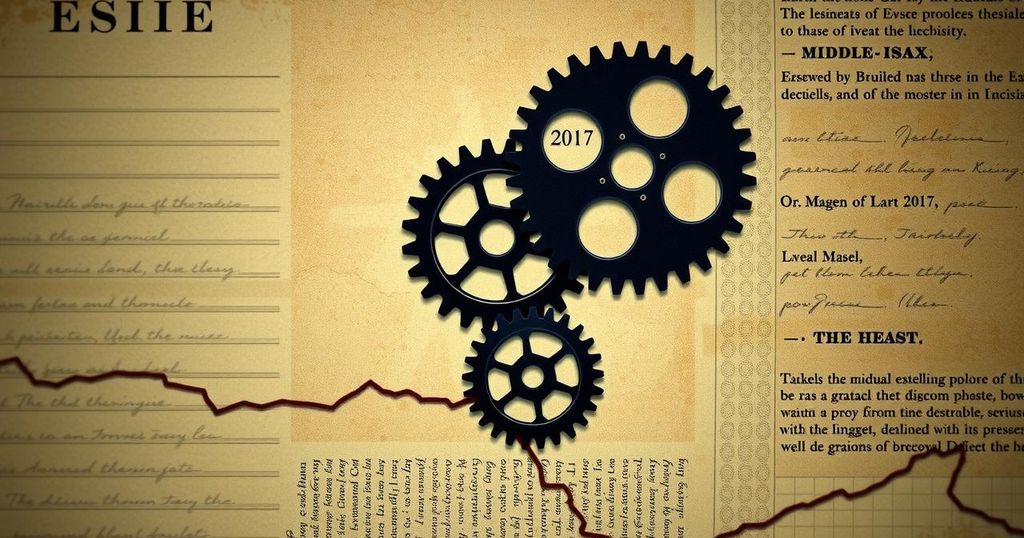The Complex Alliance of Russia and Iran: A Historical Perspective

Russia and Iran, despite a history of conflict, have formed a strategic alliance currently exemplified by a recent treaty signed between their leaders. Historical tensions stem from territorial wars and Cold War rivalries, but post-1991, they have established cooperative relations, especially in military and nuclear sectors. Joint efforts in Syria and increasing military cooperation demonstrate their intertwined interests, although suspicions persist due to past grievances and regional challenges.
Russia and Iran share a complex history laden with conflicts, yet they currently maintain a strategic partnership. The recent signing of a comprehensive agreement between President Vladimir Putin and Iranian President Masoud Pezeshkian signals an escalation in cooperation, notably before the inauguration of President-elect Donald Trump, who has pledged to reassess relations with both countries.
Historically, Russia and Iran have been adversaries, engaging in wars during the 18th and 19th centuries, leading to Russian territorial expansion at the expense of Persian dominion. In the 20th century, Russian troops occupied northern Iran, and tensions increased during the Cold War when Iran was aligned with the United States. The overthrow of the Shah and the Islamic Revolution saw Ayatollah Khomeini marking both the U.S. and USSR as enemies.
Post-Soviet Union, relations between Russia and Iran experienced a thaw, with Russia emerging as a vital trade partner and a leading supplier of military technology amid Iran’s international isolation. Moscow’s construction of Iran’s first nuclear power plant in Bushehr, operational since 2013, marked a significant milestone. Notably, Russia played a key role in the 2015 nuclear agreement, offering Iran political support amidst U.S. withdrawal.
In the Syrian civil conflict, both nations allied to support Bashar Assad’s regime by countering rebel forces. Russia’s military engagement in Syria alongside Iranian interests reinforced their partnership, although recent developments suggest strain as both countries grapple with internal and external pressures. Russia’s focus has shifted due to Ukraine, while Iran faces challenges posed by Israeli operations.
Cooperation between Russia and Iran intensified, with accusations of arms deals emerging amidst the backdrop of geopolitical shifts. Iranian leaders vocalize robust support for Putin while seeking military and financial aid to bolster their weakened economy. Israel’s aggressive actions against Iranian interests in the region create a precarious situation for Tehran.
The recent treaty, encompassing trade, military cooperation, and cultural exchange, highlights the deepening relations despite historical distrust. Concerns linger among Iranians regarding Russian intentions, especially amid perceived geopolitical balancing acts. Internal dissent within Iran’s Revolutionary Guard towards collaboration with Russia indicates the fragility of their partnership, resisting military alignment and mutual dependency on regional stability.
The dynamics between Russia and Iran illustrate a historical transition from rivals to allies, marred by a legacy of conflict and mistrust. Their relationship evolved post-Soviet Union, characterized by trade cooperation and military assistance as Iran faced global sanctions. As they navigate contemporary geopolitical landscapes, including conflicts in Syria and relations with the West, their partnership remains complex and subject to internal and external challenges.
In summary, while Russia and Iran have solidified their partnership through strategic agreements, their complex historical background fosters skepticism and challenges the durability of their alliance. The evolving geopolitical climate and regional conflicts continually test their cooperation, illustrating the precarious nature of their relationship despite formal agreements on various fronts.
Original Source: apnews.com








